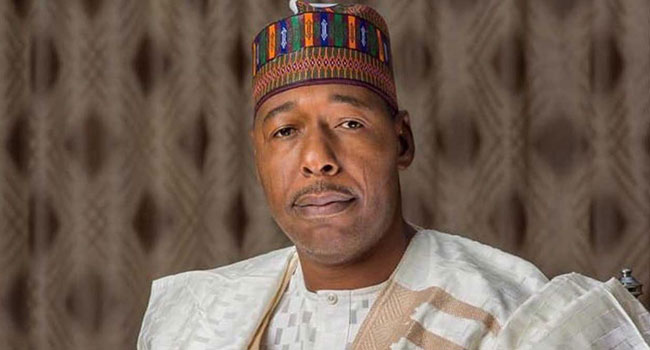
The United Nations has said the international
community is concerned on the alleged indiscretion of some international
humanitarian organisations working in the troubled North-east region of Nigeria.
The military recently clampdown on a group, ‘Action
Against Hunger and Mercy Corps’, for alleged activities against the interest of
Nigeria.
Speaking in Maiduguri during a courtesy call on
Borno State Governor, Prof. Babagana Umara, on Wednesday, the UN Under-Secretary for Humanitarian
Affairs and Emergency Relief Coordinator, Mark Lowcock, said everybody is
working for the same goal and won’t want the law of the country to be broken.
According to him, “Should there be any problem of
the activities of humanitarian organisations in the country, it is not just for
Nigeria, but for the entire international community.”
He said these agencies understood, stressing that:
“Everybody has similar goal here, and it is to reduce the pains and sufferings
of the people.”
Lowcock, while emphasising that the international
community would not want the rule of law of the country to be broken, he said:
“All the international agencies operating in the troubled region are registered
with the authorities in the proper way.”
He added that their (humanitarian organisations)
activities are equally being monitored by the Economic and Financial Crimes
Commission (EFCC) and the fund they are spending were gotten from reliable
sources, especially foreign governments, which ensure that the funds are used
for the purpose for which they were given.
Lowcock said the foreign donors always ensure that
the funds are not be diverted, noting that these international agencies operate
where the government has access to.
He lamented that the crisis in the Northeast
continued to pose threat to thousands of people in the troubled area.
Lowcock said both the military and international
humanitarian agencies need to collaborate to bring succour to millions of
people affected by the Boko Haram crisis.
He said there should be proportionate response from
both the military and the humanitarian actors, and it is only by this that the
problem can be dealt with.
Lowcock revealed that international agencies are
operating under the legal framework provided by the authorities in the host
country.
The UN chief noted that most of the workers of the
UN agencies, international and local NGOs are Nigerians and they have ensured
that about 3.8 million people have been reached this year alone.
Earlier, the Minister of Humanitarian Affairs,
Disaster Management and Social Development, Hajiya Sadiya Umar-Farouk, said the
Nigerian Government appreciates the efforts of the international humanitarian
agencies working in the Northeast to provide humanitarian assistance to the people of the troubled
region.
She said the current problem with the humanitarian
agencies had to do with national security, but that her ministry was working to
settle the rift.
Farouk said there was ongoing move with the
military, Borno State Government and agencies concerned to resolve it with
respect to international norms and best practices.
The intervention, she said was to buttress the
issue of trust and understanding, noting that the military and the INGOs have
provided security and relief to millions of people of the troubled region.
She added that investigation is still ongoing on the
issues leading to the banning of the activities of the accused INGOs, adding
that in the meantime, her ministry will ensure that the people were not
affected by the banning of the activities of the accused agencies.
The Governor of Borno State, Prof. Babagana Umara, on his
part, said the people of the state cannot continue to depend on food and other
relief materials from humanitarian organisations, and would love to see the
crisis over as soon as possible.
He appealed to the UN to come to the assistance of the
Nigerian Government by helping with modern war equipment that would assist the
country in winning the war against insurgency.
No comments:
Post a Comment